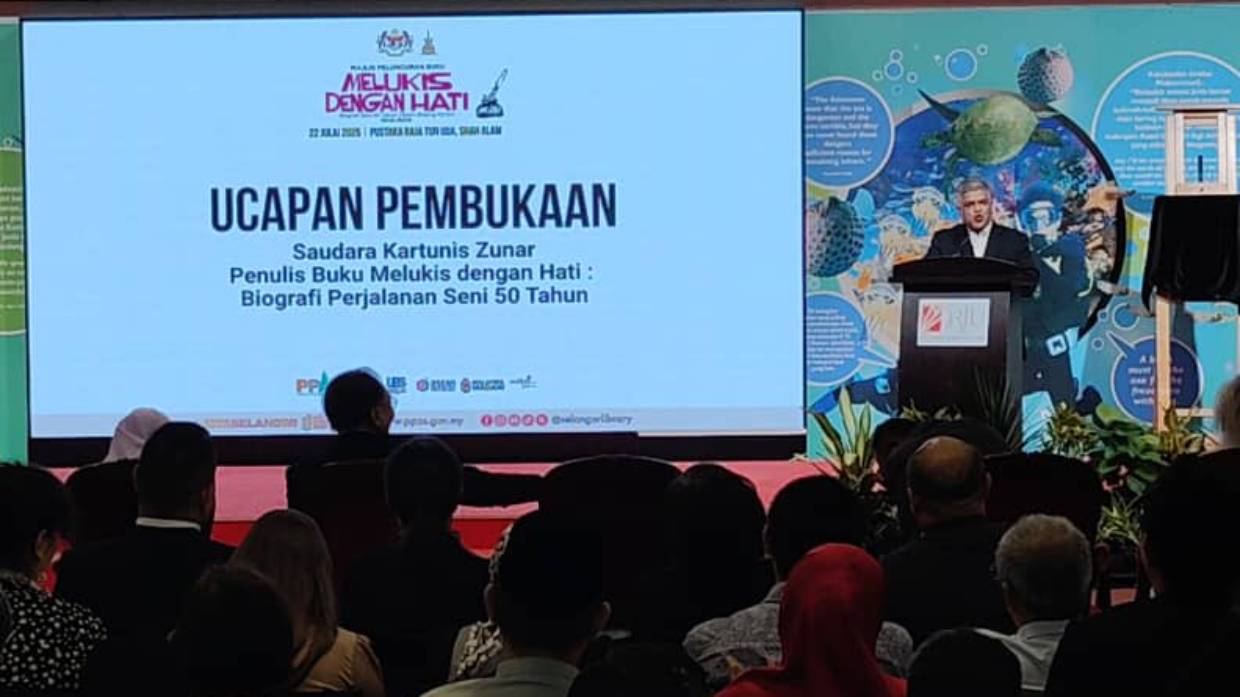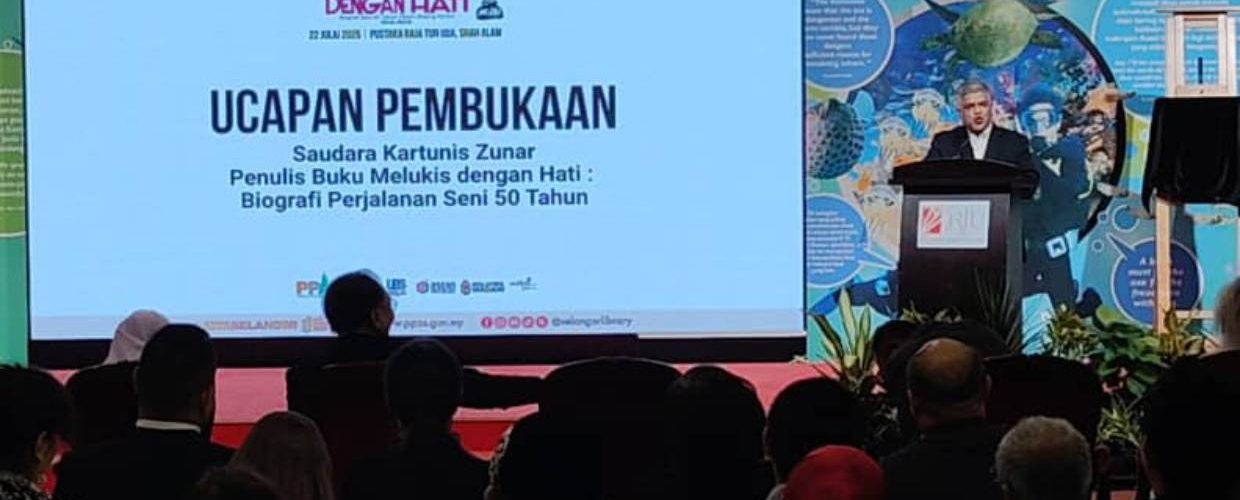With his trademark wit and razor-sharp critique, Malaysia’s most iconic political cartoonist, Zunar, has launched Melukis Dengan Hati (Drawing with Heart), a visual memoir that traces five decades of artistic rebellion. The book was unveiled at the Raja Tun Uda Library in Shah Alam, drawing a packed crowd and a significant guest—Prime Minister Datuk Seri Anwar Ibrahim—whose presence signified the profound influence of Zunar’s art on the nation’s democratic evolution.
Far more than a cartoon collection, the 230-page hardcover is a deeply personal record of Zunar’s journey through Malaysia’s shifting political landscape. From his early work in Gila-Gila magazine during the 1970s to global acclaim as a champion of free expression, the memoir interweaves iconic illustrations, rare behind-the-scenes sketches, and candid reflections. The book, which took a year to complete, was offered at a special launch price—transforming it into an instant collector’s item.

Zunar’s influence stems not just from artistic prowess, but from relentless courage. He has faced sedition charges, publication bans, and travel restrictions for cartoons that held the powerful to account. Despite state repression—including police raids and accusations of threatening parliamentary democracy—he never once laid down his pen.
Celebration with a cautionary note
While the launch event celebrated his enduring legacy, Zunar used the moment to deliver a pointed warning about the latest threat facing artists: artificial intelligence. He highlighted the shift from visible forms of censorship to a more insidious challenge—one that quietly undermines the value of human creativity and risks eroding the role of artists in society.
He expressed concern that AI—capable of replicating artistic styles—could push out human creators under the guise of efficiency and cost-effectiveness. The dilemma is particularly stark for emerging illustrators, many of whom already struggle to compete with algorithm-generated content. More troubling, Zunar said, is the use of artists’ work to train AI systems without consent, a practice that remains legally murky and ethically fraught.
The message resonated with younger artists in attendance, who nodded in agreement as Zunar argued that machines can produce images, but not insight.

The pen against power
Zunar’s cartoons have long served as visual resistance. Whether skewering corruption or mocking autocratic excesses, his work has sparked debate, protest, and even legal battles. Among his many international accolades are the Courage in Editorial Cartooning Award (2011), the International Press Freedom Award (2015), and the Cartooning for Peace Award (2016)—each honour underscoring his global stature as both artist and activist.
Despite the accolades, Zunar has never seen cartooning as entertainment. His work in Melukis Dengan Hati reflects a clear conviction: that satire, when wielded with purpose, can expose falsehoods, challenge narratives, and awaken public conscience.
The memoir is not merely retrospective. It is a guidepost, especially for younger generations navigating today’s complex digital landscape. Zunar’s story offers both caution and inspiration—a reminder that freedom of expression must be constantly defended, whether from political suppression or technological disruption.
Zunar’s defiance has outlived three prime ministers, multiple arrests, and waves of censorship. Now in his 50th year as a cartoonist, he continues to draw with the same fire that made him a household name—and a thorn in the side of authoritarianism. Melukis Dengan Hati cements his legacy not just as a cartoonist, but as a conscience of the nation.












Add comment